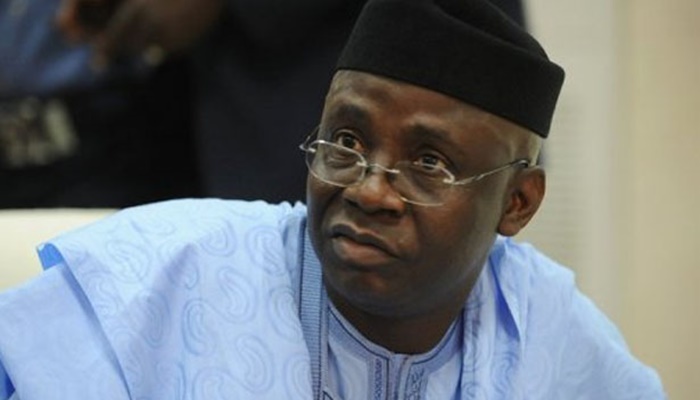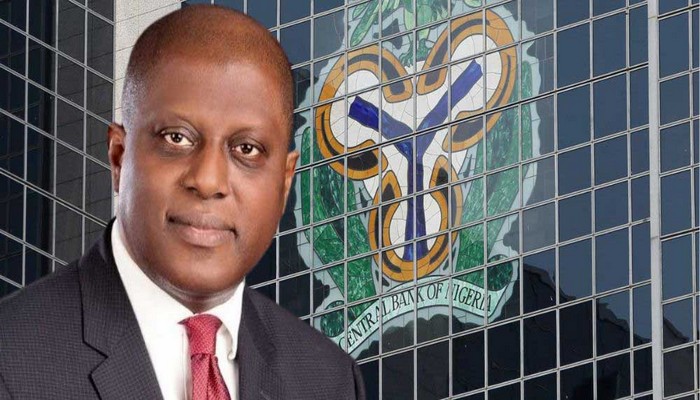
Serving General Overseer of Latter Rain Assembly, Pastor Tunde Bakare, on Sunday advocated the setting up of Presidential Commission with a 10-year mandate as a practical step to actualise the restructuring of Nigeria, saying the commission must be allowed to commence by 2018 and conclude by 2028.
According to him, the suggestion follows the manner in which the Nigeria’s seat of power, Abuja was finally put in place over a period of 15 years, saying the idea called for sustainability, adding: “We expect that the project will be flagged off under the administration of President Muhammadu Buhari in the period leading to the next governmental fiscal year.”
Bakare made the call in reaction to various agitations by various groups for restructuring of the country, while delivering his State of the Nation address in the church with the theme: “Pragmatic Steps towards Restructuring Nigeria,” even as he declared that the buck stops on the desk of President Muhammadu Buhari whose legacy was at stake, praying that the president would find the courage and political will to do what was right at this momentous period in the history of Nigeria.
According to Bakare, who is also the Convener of Save Nigeria Group (SNG) the body to be named “Presidential Commission for National Reconciliation, Reintegration and Restructuring” should be packaged by the president through an executive order, in full consultation with the Council of State and the National Assembly.
This was just as Bakare, who noted that many proponents of restructuring were of the belief that Buhari was against restructuring going by his recent utterances, said his interaction with him in the last seven years did not suggest such line of thought.
He also expressed hope in the National Assembly doing Nigerians proud on the onerous task of properly restructuring the country based on their antecedents particularly in frustrating the 3rd Third Agenda saga of former President Olusegun Obasanjo and in instituting “Doctoring of Necessity,” that brought in former President Goodluck Jonathan, developments that later established the polity.
“Not only does the president want agitations managed through appropriate constitutional channels, he also wants a clarification of demands in concise terms, as well as propositions on practical pathways towards achieving those demands,” he said.
Speaking of the job to be undertaken by the Commission, Bakare suggested that the panel should be given the mandate and the powers to facilitate, within 10 years, the evolution of a functional and acceptable geopolitical structure subject to constitutional provisions while the 1999 Constitution was progressively amended.
The Commission, he explained, “shall undertake a geoeconomic and geosocial path to geopolitical restructuring by creating geoeconomic frameworks, mending geosocial faultlines, and attaining a geopolitical climax.”
He said, by this, the Federal Government would progressively devolve powers to the existing 36 states, which would themselves progressively evolve into a zonal arrangement.
“For those who care to know where I stand in all this, I am an advocate of progressive and pragmatic restructuring; progressive because ours is a long-term approach, and pragmatic because the interests of every segment of the country are taken into consideration.
“It is to this end that we reiterate, and even expand the scope of, our call for the creation of a Presidential Commission for National Reconciliation, Reintegration and Restructuring by the president through an executive order, in full consultation with the Council of State and the National Assembly.
“The Presidential Commission should be given the mandate and the powers to facilitate, within ten years, the evolution of a functional and acceptable geopolitical structure subject to constitutional provisions while the 1999 Constitution is progressively amended.
“This Commission shall undertake a geoeconomic and geosocial path to geopolitical restructuring by creating geoeconomic frameworks, mending geosocial faultlines, and attaining a geopolitical climax,” Bakare said.
Speaking further, Pastor Bakare proposed the creation of six zonal commissions to be headed by zonal commissioners appointed from each zone, to work with the 36 state governors to facilitate integration, contending that implementation of this proposal would usher in breathtaking economic prosperity of the nation as each zone of the country would be empowered to harness their potentials.
“The zonal commissioners will be charged with a mandate to map out the economic potential of each zone, design or update, as the case may be, a zonal economic master plan, and coordinate federal and state efforts towards transitioning into zonal economies within ten years, thereby harnessing the comparative resources of each zone to achieve globally competitive economies of scale and scope,” he said.
He noted that the six geopolitical zones not only roughly reflect six sociocultural zones but also mirror six geoeconomic zones that could be deliberately cultivated over a period of about 10 years within which political structures could be designed.
“The ten-year window is meant to cater for the concerns of parts of the country where the notion of restructuring is opposed due to perceived economic disadvantages. Within the ten-year period, the six zones would have been aided to develop areas of comparative advantage”, he added.
The cleric said he remained an advocate of a progressive and pragmatic restructuring where all the interests of all segments of the country would be taken care of, even as he counselled those calling for the breakup of the country.
“As for those calling for secession, they should bear in mind the fact that, before the creation of the Nigerian state, there was no Yoruba nation, there was no Igbo nation, there was no Hausa nation, neither was there an Ijaw nation.
“We must not be misled by nostalgia for a spurious harmonious past or the myth of homogenous ethnic groups that are far removed from reality. The area around the Niger was marked with unrest, continuous intergroup conflict, subjugation, enslavement and oppression of the weaker by the stronger until Nigeria provided the possibility for peaceful coexistence. For this, we must appreciate the Nigerian state, we must celebrate our Nigerian-ness and we must gravitate towards strengthening our nationhood rather than cursing our blessing,” he said.
The cleric, however, said the President, the National Assembly, the Judiciary, the state governments, the State Houses of Assembly, the Council of State, political parties, the private sector and the generality of Nigerians all had a critical role to play in initiating, implementing, sustaining and defending the process and its outcomes.
“We must think, not as sectionalists but as nationalists; not as sceptics who only see obstacles, but as optimists, who see opportunities; not as politicians, mindful only of the next election, but as statesmen mindful of the next generation,” he counselled.
On the doubt that many Nigerians have about the integrity of the National Assembly members, Bakare said: “However, due to the reputation that members of the hallowed chambers have created in the minds of Nigerians, many have expressed doubts as to the ability and willingness of the National Assembly to midwife the structural, institutional and constitutional solutions demanded by Nigeria’s historical and present circumstances.
“As a result, Nigerians from all walks of life are questioning Mr President’s recommendations as to proper channels for agitations, even though the National Assembly and by extension the State Houses of Assembly are the only available constitutional avenues for making peaceful change possible and violent change inconceivable.
“We can only keep hope alive by reminding ourselves that the National Assembly has, in the past, risen to the occasion and intervened at crucial moments such as this.
“From the decisive death blow dealt the third term agenda of the then president, Chief Olusegun Obasanjo, by the 5th National Assembly, to the doctrine of necessity invoked by the 6th National Assembly, the 8th National Assembly has sufficient precedents on how to act in the best interest of Nigeria. We believe that the distinguished and honourable lawmakers will rise to the occasion and work closely with the president to pilot Nigeria into stable and prosperous nationhood.”
In conclusion, Pastor Bakare charged: “Having laid the foundation of the need for legislative responsibility, I must state that, as far as championing the far-reaching structural, institutional and constitutional changes necessary to salvage the soul of our nation is concerned, the words on the desk of the 33rd president of the United States, Harry Truman: ‘THE BUCK STOPS HERE!,’ are relevant to President Buhari whose legacy is at stake.
“Mr President, the buck stops at your desk and, as always, my earnest prayer is that you find the courage and political will to do what is right at this momentous period in the history of our nation.”
Credit: Nigerian Tribune






